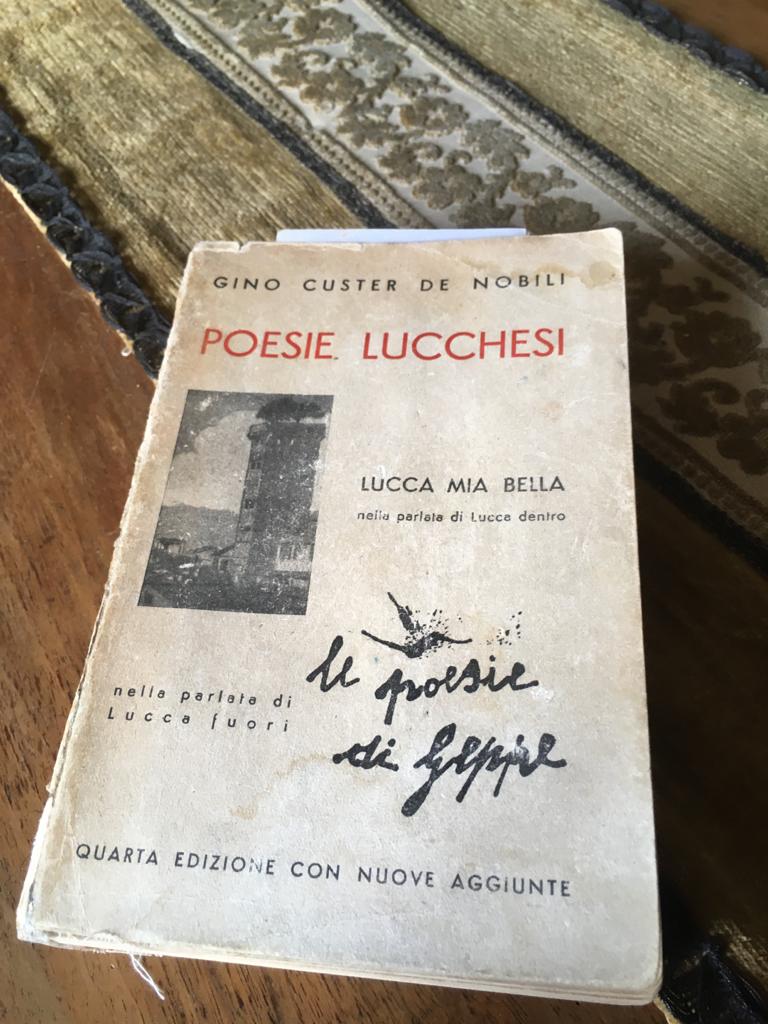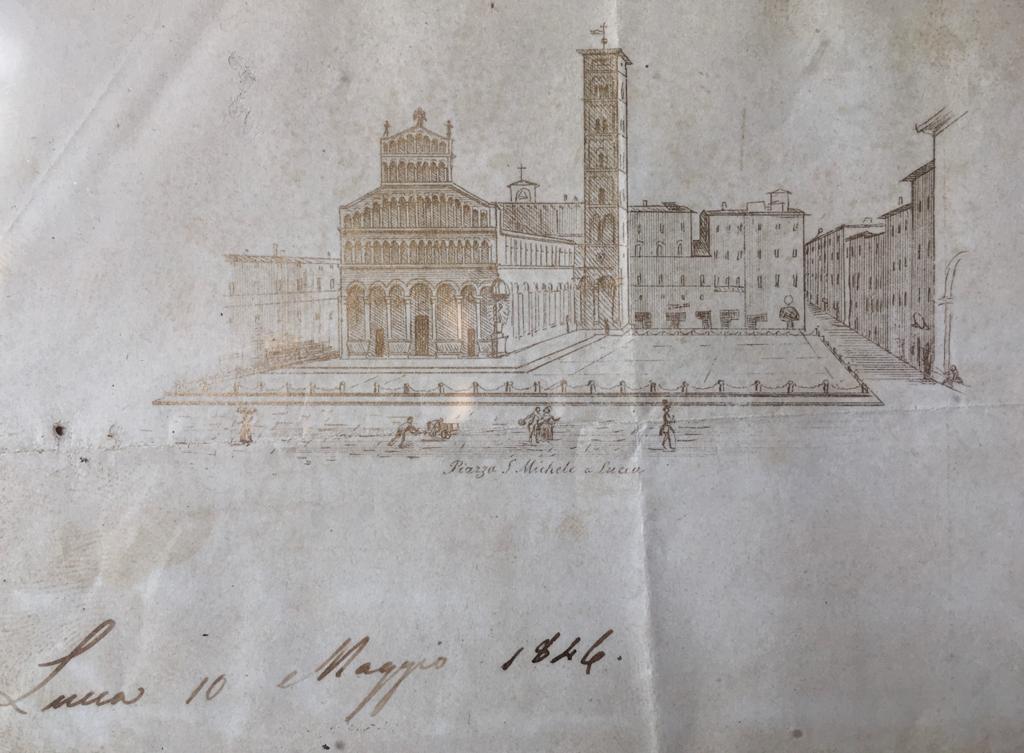
I’d like to continue to speak about a tourist guide’s tools of the trade. The more you have filed away the better, therefore knowing something about literature and poetry can come in handy.
Today, I’m going to talk about something a bit more particular, poetry written in the vernacular of Lucca. This is a difficult subject to broach with visitors, albeit Italian, because the regions of Italy have many different dialects, or perhaps it might be more appropriate to say, different languages.
I was born in Milan, my mother’s surname was Bassetti, and when I was twelve, I had to change ‘language’ and become ‘Lucchese (1) ’ very quickly. I must admit that I haven’t been able to change the way I pronounce ‘s’ so when I say certain words, my northern Italian accent seeps through. However, my father, Lucchese in his heart and soul, would recite the poems of Geppe (pen name of Gino Custer De Nobili) to me. They were written in the local dialect and were wonderful to listen to. The witty poems were from a collection called ‘Lucca mia bella’ (My Beautiful Lucca).
This scholar of noble lineage was born in Lucca in 1881 and subsequently moved to Milan where he died in 1968. When in Lucca, he was a regular patron of the former Cafe Caselli, then Di Simo, and a friend of Giacomo Puccini, who introduced him to the literary and music salons of Milan.
He earned a diploma in piano from the Istituto Musicale Pacini (today the Boccherini Conservatory). However, if the people of Lucca remember him, it is certainly not for the operatic librettos he wrote nor for his ‘cultured’ literary works but rather for the collection of poems written in the vernacular.
Most of the poems are short and rather caustic, able to lay bare the soul of the Lucchesi (2). They mostly tell of scenes of former times, of a Lucca that once was. In some, local history transpires with a Gothic revival twist and accents of out and out localism. For example, the comical description of the infinite battles between Lucca and Pisa, especially the very amusing challenge of Pontetetto, when Bonturo addresses the people of Lucca with extremely colorful language:
“…O popolo di Lucca peorona. È l’ora di fonilla.” E giù un sagrato! “Il nemico è sull’Ozzeri accampato”. “Il Pisan crudele e maleditto!”
(Oh people of Lucca, you load of sheep. It’s time to finish up the job. -Swearing away in a blasphemous manner- The enemy is camping by the Ozzeri canal. Cruel and wretched Pisans!)
However, these are no longer the Middle Ages when the Communes were constantly feuding. Today, given the circumstances, we must draw together as one people. Seeing that tourist guides and the people of Lucca can no longer stroll along the streets of the center nor on the walls due to the Coronavirus, which has spread throughout the world, the following is a short poem by Geppe called “Fillungo”, which as many know, is the main street and heart of town, where the people of Lucca stroll, gather, and meet.
(1) : Lucchese: a person of Lucca
(2) : Lucchesi: the plural of Lucchese
Gabriele 
Fillungo
Maledeggio a sta’ fermi. Via. Mi movo.
Faccio tre o quattro strade e mi ritrovo
subito nel Fillungo.
Un giro, arivo ‘n Piazza San Michele,
du’ altri giri, e li, per dindo mele,
Ripicchia nel Fillungo.
Trovo un amico… “Andiamo ‘n Piazza Grande…”
Si discorre…Mi fa delle dimande…
Si rie’ nel Fillungo.
Vado dietro a na bimba nusulle Mura…
Ni studio le mossine, la fegura…
E danni nel Fillungo!
O Fillungo, Fillungo,
rinchiuso, stretto e lungo!
Fillungo, Fillunghetto,
rinchiuso, lungo e stretto!
Fillungo
Darn staying put. Better get going. Move.
I walk three or four blocks and find myself
in Fillungo.
I walk to Piazza San Michele,
stroll round some more, and oh, for heaven’s sake,
I’m back in Fillungo.
I meet up with a friend… “Let’s go to Piazza Grande…”
We chat…He asks me questions…
We find ourselves in Fillungo again.
I walk behind a young woman on the Walls
And look at the way she moves, her figure…
And before you know it, I’m back in Fillungo!
Oh Fillungo, Fillungo,
closed in, long and narrow!
Fillungo, Fillunghetto,
closed in, long and narrow!
Translator’s note: Unfortunately, vernacular loses a lot in translation because the expressions used and the sounds and tonality of the vernacular itself cannot be captured by words. The translation is just to give you an idea of what the poem says.